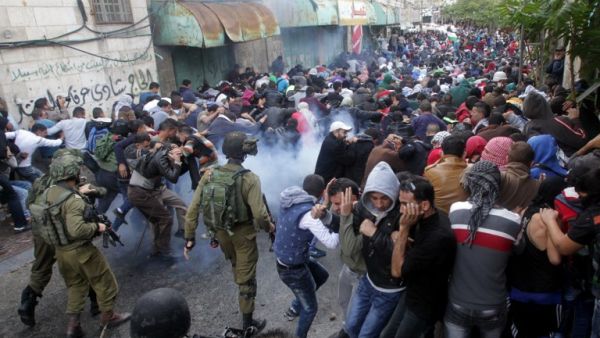Two weeks ago Israel said it would refuse to return the bodies of Palestinians killed by the Israel Defense Forces for alleged attacks. The announcement outraged Palestinians, who rallied in the West Bank on Tuesday against the policy after the IDF withheld 11 bodies.
Israel said the policy was in place to prevent more rallies that often began at funerals. Alternatively, Palestinians planned the "rally of anger," in which Arabs marched from Hebron's al-Haras Mosque to Ibn Rush Square to protest for the right to bury their dead.
For the families, not being allowed to bury their loved ones becomes a painful problem. Death is already difficult to grasp for those who have lost, but it becomes even harder when there's no spiritual closer — especially for Muslims.
And like many other religions, Islam has a specific ritual to honor the dead and send them to the afterlife. (Ironically, the procedures aren't too different from the way Orthodox Jews bury bodies.)
The procedure is detailed: Families are to close their eyes and jaws; bathe the body at an elevated level with clean water; cover it in a clean sheet; say a prayer to forgive the deceased for their sins; and bury the body, preferably immediately after the Muslim dies.
Islam specifies that family and close friends should be around during the time of death. But even without the presence of loved ones, it's likely that — given the fact the country was unwilling to return the bodies — Palestinians would not be granted their Muslim burial wishes in Israeli hands.
By Hayat Norimine






